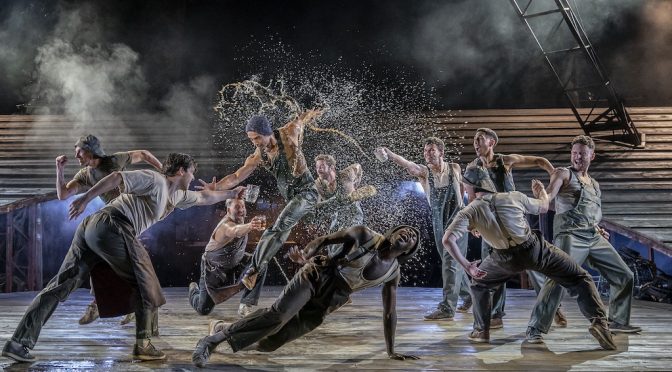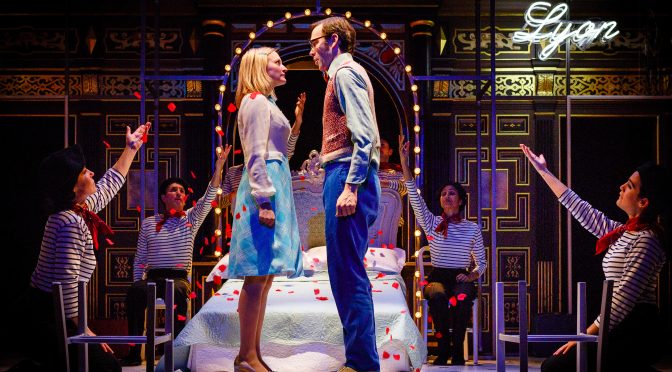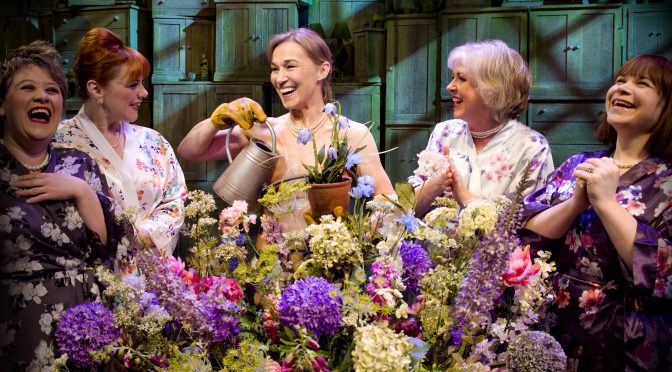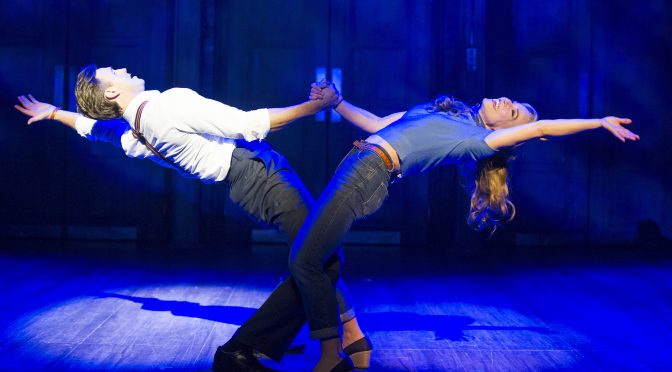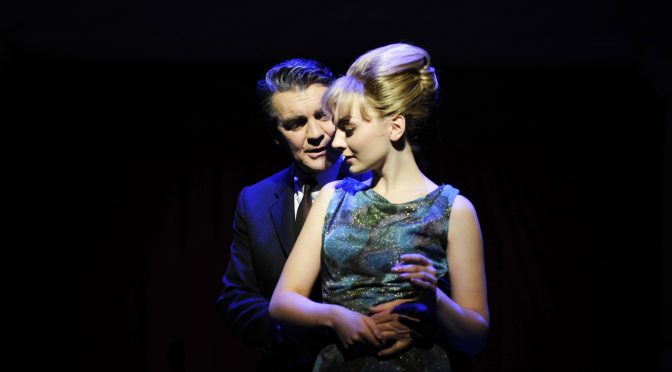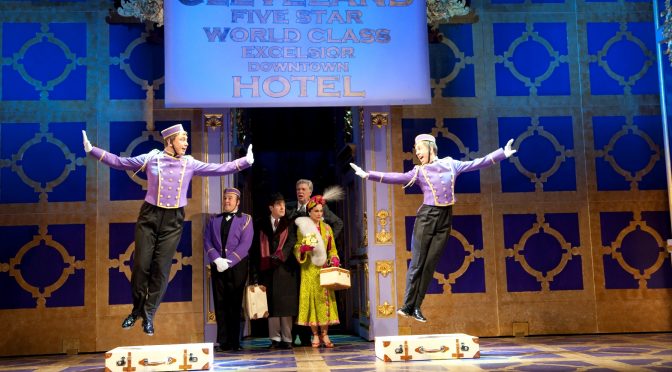The joy of theatre is that it changes all the time – it’s alive. And most can agree that Rodgers and Hammerstein’s classic musical, wonderful as it is, needs some changes. The show’s lead, wife-beating fairground attendant Billy Bigelow, is a tough sell for our times. And the too casual acceptance of his violence, including that from Mrs B, means that the romance leaves a nasty taste, despite the sublime score. Boldly attempting a new kind of Carousel, director Timothy Sheader can be applauded – the aim is admirable – even if the production doesn’t quite succeed.
Tom Scutt’s bare design is an indication that this Carousel isn’t going to be pretty or charming. Any nostalgia about the New England setting is replaced with British regional accents that manage to bring an air of working-class realism surprisingly well. And Drew McOnie’s excellent choreography shows us a world of work and violence. The only sheer delight is a wonderful Carrie Pipperidge, where Christina Modestou’s lilting Welsh voice made me wonder how she would deal with all manner of show tune standards.
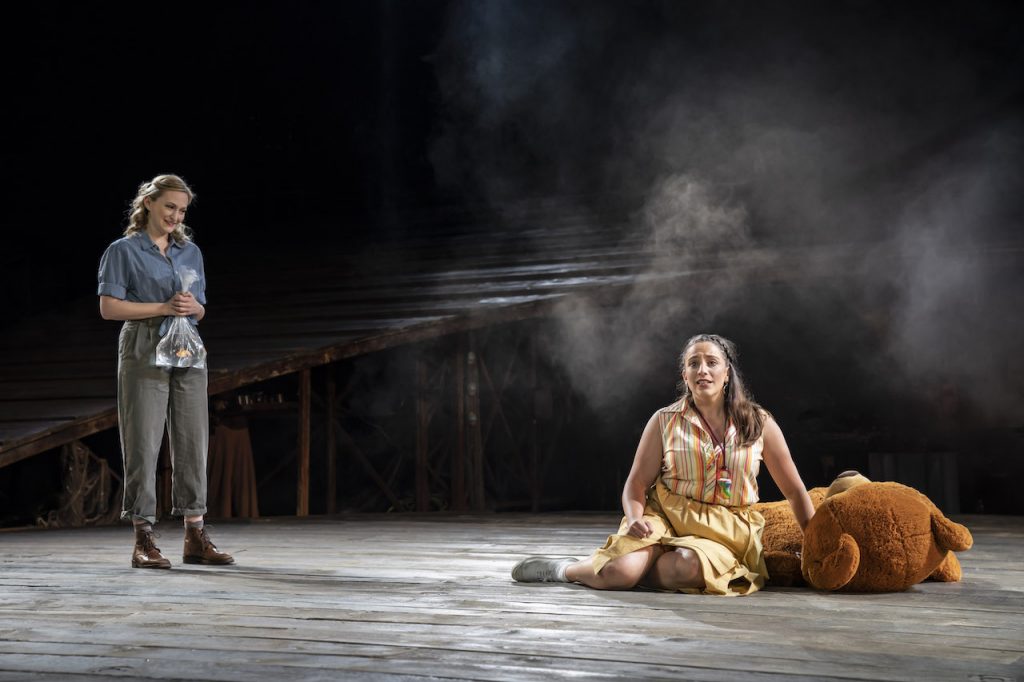
Women come to the fore in Sheader’s vision for the show. To be fair to Rodgers and Hammerstein, that isn’t hard. Carly Bawden’s Julie – the lead with bad taste in men – intrigues; she has an otherworldly quality to go with her out-of-this-world voice. Joanna Riding’s matriarchal Nettie is convincing, while the carousel owner Mrs Mullin is made a forceful presence by Jo Eaton-Kent. The ensemble provides memorable moments, confronting the audience and Billy about his crimes.
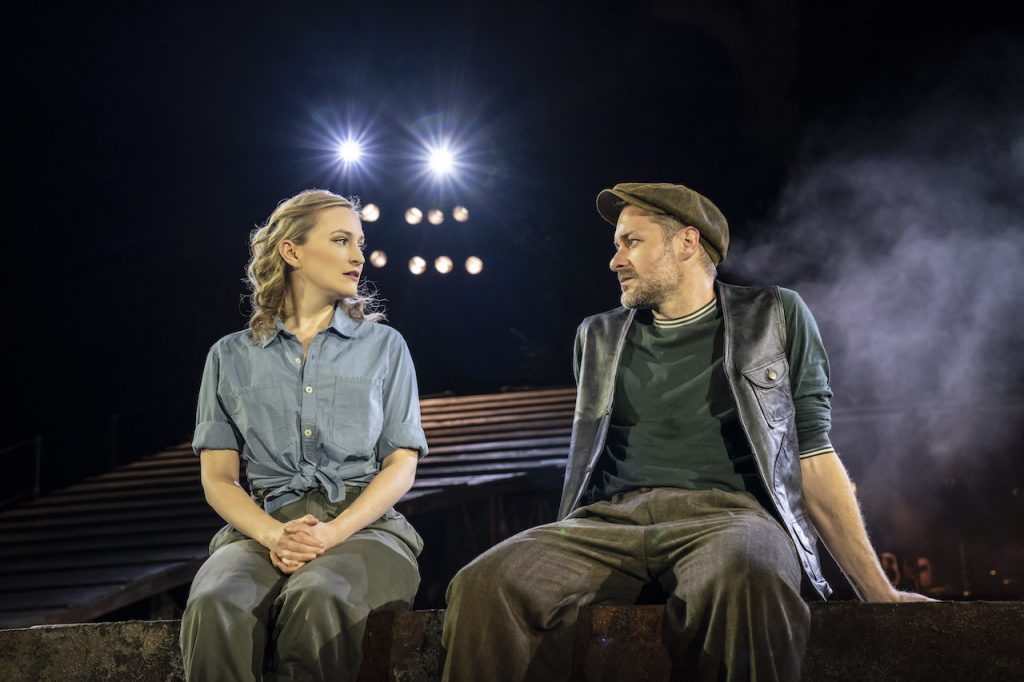
As for our kind of hero, Declan Bennett’s Billy has none of the usual charisma… fair enough. Billie is a weak, feckless character (too easily swayed by Sam Mackay’s somewhat pantomime villain, Jigger) and Bennett does this well. But Billy being boring makes the love story at the heart of the show unbelievable. We know Julie is a fool to fall for him, but if the audience doesn’t fall as well – just a little – the show becomes robbed of emotion.
A chilly Carousel then, but that isn’t the biggest problem here. While Sheader’s vision can be respected – it’s clever and clear – changes to the score are less successful, and updating the music is a riskier affair. Again, the approach is bold: a classic American score has hints of Americana (with surprisingly modern touches), but seemingly at random. The additions will keep you guessing – they entertain – but hampered by excessive amplification the sound is sometimes cheap and tinny. Overpowering the singers more than once, the music is almost unpleasant. And that can’t be the kind of new ride Sheader intended.
Until 25 September 2021
Photos by Johan Persson

